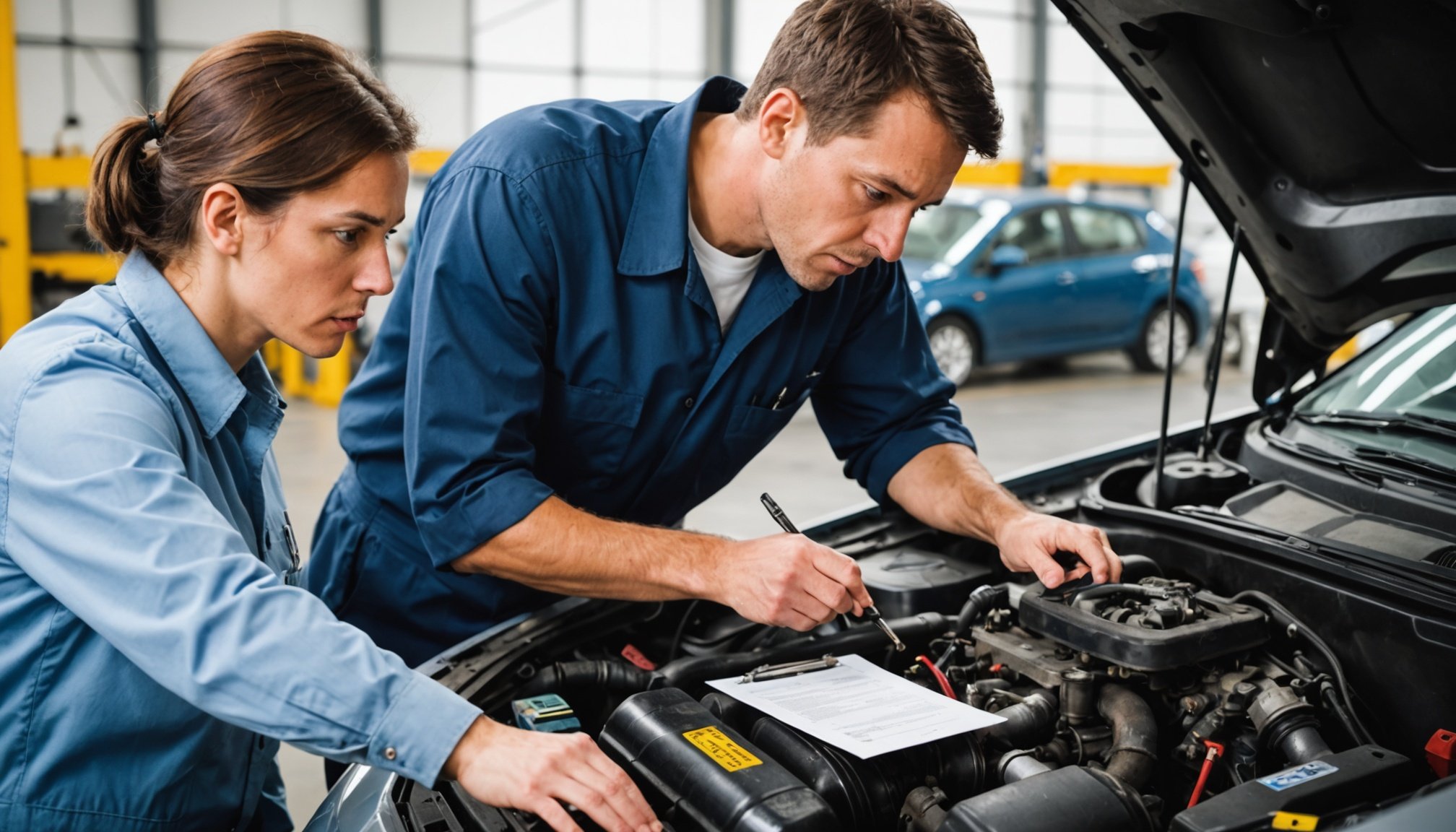As vehicle owners, we all desire safe and reliable transportation. However, sometimes manufacturers identify potential issues that could compromise the safety of our cars. When this happens, they issue recalls to fix these problems. Understanding the signs that indicate your vehicle might need a safety recall check is crucial to ensuring your safety on the road. In this article, we will explore the various signs of potential recalls, the importance of staying informed about vehicle recalls, and how to take action if you suspect your car may be affected.
Recognizing Signs of a Potential Recall
One of the primary ways to recognize if your vehicle may need a safety recall check is by paying attention to unusual noises or changes in performance. If you notice a sudden drop in acceleration, strange sounds when turning the wheel, or any warning lights on your dashboard, you should consider having your vehicle inspected. These signs may indicate a malfunction that could be linked to a safety issue, prompting a recall by the manufacturer.
Also to discover : How can I use technology to enhance my vehicle’s safety features?
Additionally, keep an eye out for any recalls issued by the NHTSA (National Highway Traffic Safety Administration). They regularly publish lists of vehicles that have been recalled due to safety concerns. Regularly checking the NHTSA website can help you stay informed about potential issues related to your vehicle. You can search for your vehicle’s VIN (Vehicle Identification Number) to see if it’s associated with any recalls.
Another indication could be a change in your vehicle’s handling. If your car feels unstable, pulls to one side, or has a hard time stopping, these might be signs of a serious issue. Such handling problems can often be linked to recalls for vehicles with braking or steering issues.
In the same genre : What steps should I take to secure my vehicle against theft and vandalism?
In addition, pay attention to any communications from your manufacturer or local dealer. If they reach out to inform you of a potential safety issue, take it seriously. They may provide information about how to proceed, including a remedy or repair options that could be available at no cost to you. Being proactive about these communications is vital for your safety.
Understanding the Recall Process
When a manufacturer identifies a potential safety issue in one of its vehicles, the process for issuing a recall begins. This usually involves notifying the NHTSA, which then oversees the recall process. The NHTSA evaluates the efficacy of the recall and ensures that the manufacturer communicates the recall information to affected vehicle owners.
As a vehicle owner, you should be aware that the recall notice will typically include details such as the problem identified, the model and year of the vehicle affected, and instructions on how to get the issue resolved. This information is important for determining whether you need to take action.
Once a recall is issued, the manufacturer is responsible for providing a remedy, which may include repairs, replacements, or reimbursement for costs incurred. Depending on the nature of the recall, these services are generally provided free of charge at authorized dealers or service centers.
If you receive a recall notice, it’s advisable to take it seriously. Delaying repairs could lead to more severe safety issues or even accidents. In some cases, the lack of action on a recall could affect your warranty or insurance coverage. Therefore, always prioritize any correspondence regarding vehicle recalls. Should you have questions or concerns about the recall notice, don’t hesitate to contact your dealer or the manufacturer directly. They can clarify the necessary steps to ensure your vehicle is safe.
How to Check for Recalls on Your Vehicle
Checking if your vehicle has any active recalls is straightforward and can be done through various channels. The most reliable method is to visit the NHTSA website, where you can search for any recalls associated with your VIN. Simply enter your VIN into their search tool, and it will provide you with a list of any recalls applicable to your vehicle.
You can also contact your dealer directly. They have access to up-to-date recall information and can tell you if your vehicle requires any repairs. Alternatively, manufacturers often provide dedicated customer service lines where you can inquire about recalls. Having your VIN handy will expedite the process and ensure you get accurate information.
Another option is to sign up for recall alerts. Many automotive websites and services allow you to register your vehicle and receive notifications whenever a new recall is issued. This proactive approach can help ensure you are constantly updated about the safety of your vehicle.
When checking for recalls, it’s also a good idea to keep an eye on automotive news. Manufacturers often announce recalls through press releases, and being informed can help you act quickly should a recall affect your vehicle. Awareness is key when it comes to vehicle safety, and staying informed can save you from potential hazards.
The Importance of Addressing Recalls Promptly
Addressing any recalls on your vehicle promptly is vital for numerous reasons. First and foremost, recalls are typically issued for safety reasons. Ignoring a recall can put you, your passengers, and other road users at risk. For instance, a faulty braking system can lead to severe accidents if not addressed immediately. When a manufacturer issues a recall, they do so with the intent of preventing potential hazards.
Additionally, many recalls come with a limited timeframe for completion. Some manufacturers may set guidelines that dictate how long they will honor the remedy for a recall. Delaying repairs could result in additional costs or complications, especially if the issue worsens over time.
Moreover, having an unresolved recall can affect your vehicle’s resale value. Potential buyers may be wary of purchasing a vehicle that has outstanding recalls, impacting your ability to sell. Addressing recalls not only enhances your safety but can also preserve the integrity and value of your car.
Lastly, staying on top of recalls contributes to the overall safety standards of the automotive industry. When consumers respond to recalls and seek repairs, it signals to manufacturers that safety is a priority. This can encourage improved practices in the future. Always remember, when it comes to recalls, time is of the essence.
Contacting the Manufacturer or Dealer for Recall Issues
If you determine that your vehicle is affected by a recall, contacting the manufacturer or your local dealer is the next step. They can provide information on the necessary repairs and how to proceed. Typically, your dealer will schedule an appointment for you to bring in your vehicle for the required work.
When reaching out to the dealer, have your VIN ready. This will help them quickly identify your vehicle and provide you with accurate information regarding the recall. Be sure to ask about the process for repairs, how long they will take, and whether any parts are currently available. In some cases, you might need to wait for specific parts to arrive before the repair can be completed.
It’s also wise to inquire about any free services that might be included in the recall process. Manufacturers usually cover the costs associated with repairs for recalls, so knowing exactly what is included can help you avoid unexpected charges.
Furthermore, if you have any difficulties getting your vehicle serviced for a recall, you can escalate your concerns to the NHTSA. They can assist in addressing issues related to the recall process and ensure that you receive the necessary repairs. Remember, the priority is to ensure your vehicle is safe and compliant with all recall notices.
In conclusion, recognizing the signs that your vehicle might need a safety recall check is essential for ensuring your safety on the road. By staying informed about recalls and understanding how to address them, you can protect yourself, your passengers, and others on the road. Regularly checking for recalls, being vigilant about your vehicle’s performance, and promptly addressing any notices received from your manufacturer or dealer can significantly impact your automotive safety. Always remember that your vehicle is an investment in your safety, and taking care of it ensures your peace of mind while driving.











